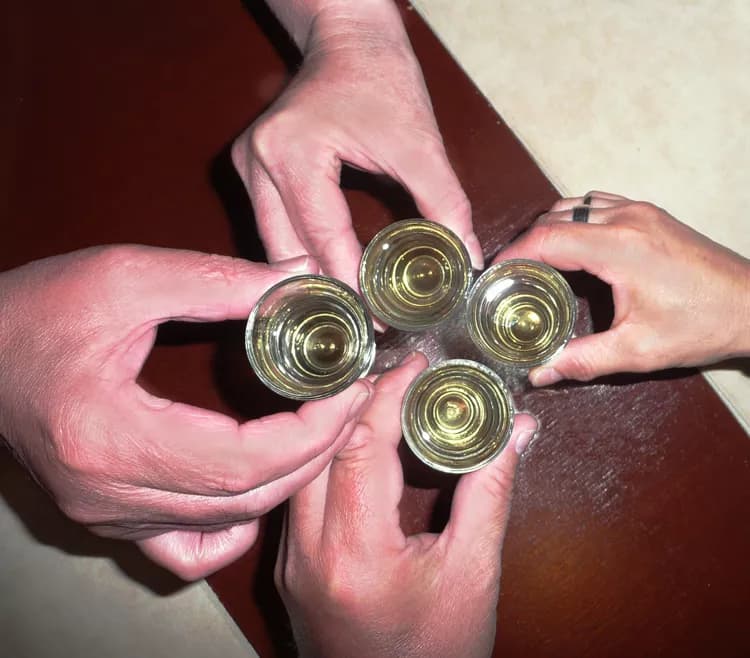A study from St. Michael’s Hospital, Toronto, Canada, finds a link between increased traumatic brain injuries and consumption of energy drinks in adolescents, without or with alcohol.
In the recent years, the number of adolescents treated for traumatic brain injury (TBI) has increased significantly (by 57% between 2001-2009). Most of the injuries are related to sports and recreational activities. Studies have shown that when compared to those without a TBI, adolescents with TBI are more likely to:
- Resort to substance use.
- Be prone to psychological distress and suicidal thoughts.
- Be prescribed medication for anxiety, depression or both.
- Be bullied (including cyber-bullying) or being threatened with a weapon at school.
- Victimize others through violent and non-violent conduct.
Because adolescents are impressionable and trying to find themselves at this age, it is important to find contributory factors to an injury, which might make them vulnerable to substance abuse and consequently, neurological and cognitive issues later in life. In this regard, the current study highlights a hitherto unresearched topic-- that of energy drinks and their contribution to TBI. “I think that energy drinks appeal to teens, especially athletes, because the drinks provide temporary benefits such as increased alertness, improved mood and enhanced mental and physical states,” says senior author Dr. Cusimano, to St. Michael’s Hospital Newsroom report. “Advertisements for the drinks also often feature prominent athletes,” he adds.
The research team analyzed data from 10,272 adolescents (7th-10th grade students) aged 11-20, derived from the Centre for Addition and Mental Health’s (CAMH) 2013 Ontario Student Drug Use and Health Survey (OSDUHS). The students were requested to complete an anonymous survey, in which they reported about their alcohol use, energy drink use, and TBI in the past year. The analysis of data showed that:
- 22.4% of all respondents reported a TBI in the past year.
- 45% of TBIs were as a consequence of sports injuries.
- Those students who never had a TBI had a higher risk of TBI when they had consumed energy drinks, alcohol, or energy drink + alcohol.
- The chances of a student suffering a TBI increased when he/she had already suffered a brain injury in the previous years.
- Compared to those who did not consume energy drinks, those who did sustain more TBIs from playing sports than other causes.
Dr. Cusimano, says, “We’ve found a link between increased brain injuries and the consumption of energy drinks or energy drinks mixed with alcohol. This is significant because energy drinks have previously been associated with general injuries, but not specifically with TBI.”
Not only do energy drinks contribute to a TBI, they may also hinder the recovery process following one, according to Dr. Cusimano, who says “Energy drinks, such a Red Bull and Rockstar, contain high levels of caffeine and change the chemical state of the body, which can prevent people from getting back on track after a TBI. Brain injuries among adolescents are particularly concerning because their brains are still developing.”
Written by Mangala Sarkar Ph.D.
Primary References:
Ilie, G., Boak, A., Mann, R., Adlaf, E., Hamilton, H., Asbridge, M., . . . Cusimano, M. (2015). Energy Drinks, Alcohol, Sports and Traumatic Brain Injuries among Adolescents. PLoS ONE. DOI: 10.1371/journal.pone.0135860
Study finds association between energy drinks and traumatic brain injury in teens. (n.d.). Retrieved September 21, 2015, from http://www.stmichaelshospital.com/media/detail.php?source=hospital_news/2015/20150916_hn
Additional References:
Nonfatal Traumatic Brain Injuries Related to Sports and Recreation Activities Among Persons Aged ≤19 Years --- United States, 2001--2009. (2011, October 7). Retrieved September 21, 2015, from http://www.cdc.gov/mmwr/preview/mmwrhtml/mm6039a1.htm
Ilie, G., Boak, A., Adlaf, E., Asbridge, M., & Cusimano, M. (2013). Prevalence and Correlates of Traumatic Brain Injuries Among Adolescents. JAMA, 309(24), 2550-2552.
Asemota, A., George, B., Bowman, S., Haider, A., & Schneider, E. (2013). Causes and Trends in Traumatic Brain Injury for United States Adolescents. JOURNAL OF NEUROTRAUMA, 30(2), 67-75.
Ilie, G., Mann, R., Boak, A., Adlaf, E., Hamilton, H., Asbridge, M., . . . Cusimano, M. (2014). Suicidality, Bullying and Other Conduct and Mental Health Correlates of Traumatic Brain Injury in Adolescents. PLoS ONE. doi:10.1371/journal.pone.0094936
Ilie, G., Mann, R., Hamilton, H., Adlaf, E., Boak, A., Asbridge, M., . . . Cusimano, M. (2015). Substance Use and Related Harms Among Adolescents With and Without Traumatic Brain Injury. Journal of Head Trauma Rehabilitation, 30(5), 293-301.
Related Articles
Test Your Knowledge
Asked by users
Related Centers
Related Specialties
Related Physicians
Related Procedures
Related Resources
Join DoveHubs
and connect with fellow professionals


0 Comments
Please log in to post a comment.